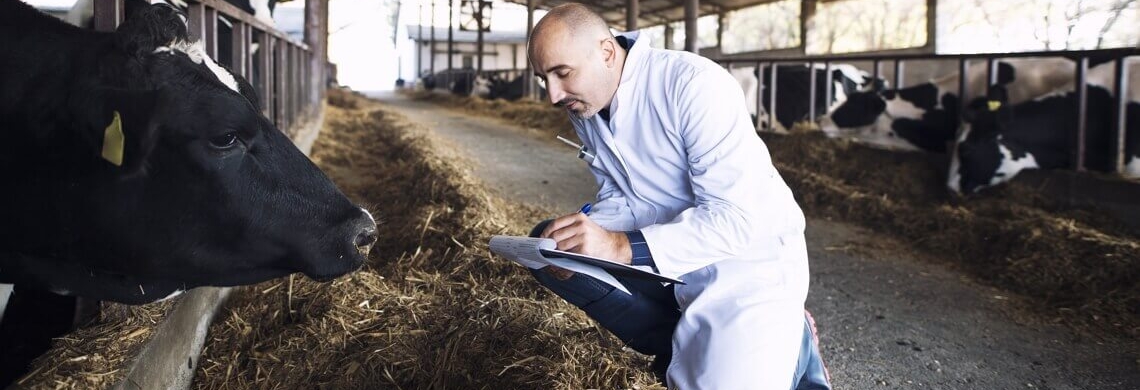Animal protection and welfare play a key role in European breeding. The European Union sets high standards for animal prevention and health for all Member States, and European breeders undertake numerous initiatives to ensure the appropriate health status of their animals.
On January 28, 2022, the European Union banned the routine use of antibiotics in all forms, including the prophylactic treatment of entire groups of animals. The practice of using antibiotics to compensate for the poor welfare and lack of proper hygiene of bred animals has become illegal. This step is crucial for a more responsible and sustainable use of antibiotics in the livestock sector in the European Union[1].
Breeders are required to maintain appropriate sanitary and hygienic conditions on their farms and to use appropriate vaccination protocols. Regular veterinary checks are also required to ensure monitoring and identification of potential health risks.
The key requirements of the European Union include, among others[2]:
Sanitary and hygienic conditions: Breeders are obliged to maintain appropriate sanitary and hygienic conditions on their farms. This includes the provision of clean drinking water, adequate lighting, ventilation and space for animals, as well as waste management systems. The goal is to prevent the spread of diseases and minimize the risk of infections.
Vaccination protocols: Breeders must maintain proper vaccination protocols for their animals. Vaccinations are important in preventing infectious diseases and reducing the risk of epidemics. Breeders must consciously monitor vaccinations and ensure that all animals are vaccinated.
Veterinary checks: Regular veterinary checks are required to monitor the condition of the animals and identify potential health risks. Veterinarians inspect farms and assess the general health of the animals, including condition assessment, presence of diseases, condition of feed, etc. Veterinary inspections aim to prevent the spread of diseases and keep the herd healthy.
Veterinary checks: Regular veterinary checks are required to monitor the condition of the animals and identify potential health risks. Veterinarians inspect farms and assess the general health of the animals, including the assessment of their condition, presence of diseases, condition of feed, etc. Veterinary inspections aim to prevent the spread of diseases and keep the herd healthy.
Appropriate use of antibiotics: The EU has strict rules on the use of antibiotics in animal breeding. Breeders are required to adhere to specific limits and withdrawal periods that dictate when animals may be reintroduced into the food chain after antibiotics have been administered. The aim is to minimize the risk of resistance of bacteria to antibiotics and to protect human immunity.
Breeders’ awareness and training: Breeders are required to participate in animal prevention training and workshops. Such initiatives aim to provide the latest information on new methods, innovative solutions and best practices for keeping animals in good condition. The aim of these trainings is to provide breeders with the appropriate knowledge, skills and tools for effective herd management.
The European Union has strict rules on the use of antibiotics in animal breeding to prevent the development of resistance of bacteria to antibiotics, which is a serious threat to the protection of human immunity. Antibiotics should only be used when absolutely necessary: when there is a legitimate medical need. Breeders are required to use antibiotics only when a disease is diagnosed or bacterial infection is confirmed by a veterinarian. Widespread access to antibiotics is also limited. Breeders have access to antibiotics only through a veterinarian who will then assess the condition of the animals, diagnose diseases and prescribe the appropriate antibiotic therapy. This restriction of access to antibiotics is intended to prevent abuse and ensure their appropriate and controlled use.
Prioritizing the condition of animals is not only beneficial for the welfare of bred animals, but is also important for consumers who expect high quality and safety of animal products. Aiming to maintain high standards of animal health in Europe requires close cooperation between breeders, veterinarians and regulators to ensure the sustainability of the livestock sector and the protection of the public.
Photo: Freepik / aleksandarlittlewolf
[1] https://serwisweterynaryjny.pl/prawo-na-co-dzien/przepisy-dotyczace-stosowania-antybiotykow-u-zwierzat-530.html
[2] https://koalicjazywaziemia.pl/2022/02/03/odejscie-od-rutynowego-stosowania-antybiotykow-w-europejskich-hodowlach/




)
)